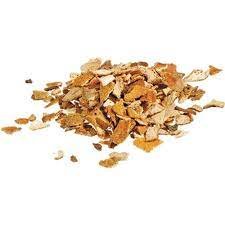5 Top Health Benefits of Saffron Milk for Expecting Mothers
Table of Contents
- Introduction
- Is Saffron Milk Good for Pregnancy?
- Potential Benefits of Saffron During Pregnancy
- Mood enhancement
- Improved digestion
- Better sleep
- Reduced blood pressure
- Relief from muscle cramps
- Important Risks and Precautions
- Avoid in the first trimester
- Safe daily intake (1–2 strands)
- Consultation with healthcare providers
- Final Word on Fair Skin Myth
- Cultural Stories and Traditions
- Step-by-Step Guide: How to Make Saffron Milk Safely
- Safety Checklist
- FAQs Section
- Conclusion
Introduction
Pregnancy brings a mix of excitement and new challenges, from mood swings to sleep disruptions. Across generations, saffron milk has been cherished as a gentle, natural remedy to support expecting mothers. With its subtle aroma, golden hue, and nutrient-rich profile, saffron offers more than just flavor. It can promote relaxation, improve digestion, and enhance overall well-being when used wisely. In this blog, we explore how saffron milk can be safely incorporated into a prenatal diet, the precautions to keep in mind, and practical tips for enjoying this traditional tonic during pregnancy.
Is Saffron Milk Good for Pregnancy?
Saffron milk, a traditional remedy in many cultures, is often recommended for pregnant women due to its warming qualities and potential health benefits. When consumed in moderation and after the first trimester, it is generally considered safe.
Saffron contains antioxidants and bioactive compounds that may help with digestion, mood regulation, and sleep quality, all of which can be valuable during pregnancy. Some traditional practices also suggest that saffron milk supports circulation and may ease mild pregnancy discomforts such as bloating or stress.
Facts for Pregnant Ladies
However, timing and dosage are crucial. Excessive intake of saffron (over 5 grams daily) can be harmful and may trigger uterine contractions, posing risks in early pregnancy. For this reason, most health experts advise waiting until the second or third trimester before including saffron milk in the diet, and only in very small amounts (typically a few strands steeped in warm milk).
As with any supplement or traditional remedy, pregnant women should consult their healthcare provider before adding saffron milk to their routine, ensuring it aligns with their specific health needs and pregnancy conditions.

Potential Benefits of Saffron During Pregnancy
When consumed in small, recommended amounts (generally just a few strands per day, steeped in warm milk or water), saffron is believed to provide several supportive benefits during pregnancy:
1. Mood Enhancement
- Hormonal changes can trigger mood swings, anxiety, or mild depression during pregnancy. Research suggests saffron may act as a natural mood stabilizer by influencing serotonin levels, helping expectant mothers feel calmer and more emotionally balanced.
2. Improved Digestion
- Constipation, bloating, and sluggish digestion are common pregnancy complaints. Saffron may gently stimulate blood flow in the digestive system, supporting smoother digestion and easing discomfort.
3. Better Sleep
- Restless nights often increase as pregnancy progresses. The mild sedative and calming properties of saffron can promote relaxation, making it easier to fall asleep and improving overall sleep quality.
4. Regulated Blood Pressure
- Fluctuations in blood pressure are not uncommon during pregnancy. Antioxidants like crocin and crocetin found in saffron may support cardiovascular health by helping maintain stable blood pressure levels.
5. Relief from Muscle Cramps
- Muscle cramps, particularly in the legs, often intensify in the third trimester. Thanks to its anti-spasmodic effects, saffron may help relax muscles and reduce cramping.
Important Risks and Precautions
While saffron can offer benefits during pregnancy, it must be used with great care. The main concern is its ability to stimulate uterine contractions, which can pose risks if consumed incorrectly. Key precautions include:
1. Avoid in the First Trimester
- Saffron is generally not recommended during the early months of pregnancy. Its uterine-stimulating properties may increase the risk of miscarriage if taken during the first trimester.
2. Moderation is Essential
- Saffron is safe only in very small amounts. Large doses—typically more than 5 grams per day (far exceeding culinary use)—can be toxic and may trigger premature labor or other complications. The safe daily intake is usually no more than a pinch (1–2 strands) steeped in milk or warm liquid.
3. Consult a Healthcare Provider
- Every pregnancy is different, and individual health factors matter. Before adding saffron or any supplement to the diet, it is vital to seek guidance from a doctor or gynecologist. Professional advice ensures that saffron is used safely and appropriately.
Final Word on the “Fair Skin” Myth
A widespread cultural belief suggests that saffron can make a baby’s skin fairer. This is a myth. A baby’s complexion is determined entirely by genetics and cannot be altered by a mother’s diet.
Cultural Stories and Traditions
Saffron milk carries deep cultural significance across various regions, reflecting both care for the mother and the symbolic value of the spice:
1. Iran (Persia):
Known as Shir Bâ Zaferân, saffron milk is traditionally offered to expectant mothers to promote vitality, calmness, and overall well-being. It is considered a luxurious and healthful tonic.
2. India:
In many Indian households, saffron milk is gifted to pregnant women during the second and third trimesters as a gesture of nurturing and good fortune. It is often served warm with cardamom or honey, celebrating the arrival of new life.
3. Morocco & Middle East:
- Saffron-infused drinks or milk are given to pregnant women as a soothing beverage to aid sleep, digestion, and relaxation, embodying centuries of maternal care practices.
Across cultures, the act of giving saffron milk symbolizes love, health, and protection, highlighting the spice’s historical and emotional value in prenatal traditions.
Step-by-Step Guide: How to Make Saffron Milk Safely
Saffron milk is a comforting and aromatic way to enjoy the gentle benefits of this prized spice during pregnancy. When prepared correctly, it can support mood, digestion, and sleep while offering a soothing, nourishing beverage.
Ingredients (per serving):
- 1 cup of milk (dairy or plant-based)
- 2–3 saffron strands
- Optional: ¼ teaspoon cardamom powder or a few crushed green cardamom pods
- Optional: ½ teaspoon honey or jaggery (added after milk cools slightly)
Instructions:
- Warm the Milk
- Pour milk into a small saucepan and heat over low to medium flame. Avoid boiling, as extremely high temperatures can degrade saffron’s compounds.
- Steep the Saffron
- Crush 2–3 saffron strands lightly between your fingers or using a mortar and pestle.
- Add the strands to the warm milk and allow them to steep for 5–10 minutes, releasing their golden color, aroma, and beneficial compounds.
- Add Optional Flavors
- For added taste and aroma, include cardamom powder or pods during steeping.
- Sweeten with honey or jaggery after the milk has cooled slightly (below 40°C/104°F) to preserve their nutrients.
- Serve Safely
- Pour into a cup and enjoy warm. Only a small serving (one cup per day) is recommended during pregnancy.
Tips for Safety and Maximum Benefit:
- Moderation is key: Use just 2–3 saffron strands per serving. Avoid exceeding this to prevent any uterine stimulation.
- Storage: Use fresh saffron stored in an airtight container, away from light and moisture.
- Consultation: Always check with your healthcare provider before incorporating new herbal remedies into your pregnancy diet.
Optional Variation:
- For a creamier version, simmer the milk slowly for 5 minutes before adding saffron, ensuring the strands do not boil.
Saffron Safety Checklist for Pregnancy
Aspect | Recommendation / Note |
Safe Dosage | 1–2 saffron strands per day (steeped in milk, water, or food). Avoid exceeding 5 grams per day. |
Trimester Restrictions | Avoid during the first trimester due to risk of uterine contractions. Safe to use in second and third trimesters in small amounts. |
Signs of Overconsumption | Nausea, dizziness, vomiting, diarrhea, or unusual uterine activity. Seek medical advice immediately if these occur. |
Form to Use | Prefer whole saffron threads. Avoid ground saffron powders that may be adulterated. |
Consult Healthcare Provider | Always consult your doctor or gynecologist before adding saffron or any herbal supplement to your diet. This ensures safety based on personal health and pregnancy conditions. |
Storage Tips | Keep saffron in an airtight container, away from heat, light, and moisture. Proper storage preserves potency for up to two years. |
Culinary Tips | Soak threads in warm liquid before use to release aroma, color, and beneficial compounds. Add only small amounts to recipes. |
FAQs: Saffron and Pregnancy
Can I drink saffron milk during pregnancy?
Yes, saffron milk can be consumed safely during pregnancy after the first trimester, but only in small amounts (typically 1–2 strands steeped in warm milk). This allows you to enjoy its potential benefits without risking uterine stimulation.
What are the benefits of saffron for pregnant women?
In moderation, saffron may help enhance mood, support digestion, improve sleep quality, regulate blood pressure, and reduce mild muscle cramps. Its antioxidant compounds also contribute to overall well-being.
Is saffron safe in the first trimester?
No, saffron is generally not recommended during the first trimester, as it can stimulate uterine contractions, which may increase the risk of miscarriage.
How much saffron is safe during pregnancy?
A small pinch (1–2 strands) per day is considered safe. Large quantities (over 5 grams per day) can be toxic and may trigger uterine contractions or other complications.
Can saffron make my baby’s skin fairer?
No. A baby’s complexion is determined by genetics, and maternal consumption of saffron or any other food does not affect skin color.
Are there cultural practices involving saffron during pregnancy?
Yes. In India, Persia, and the Middle East, saffron milk or tea is traditionally consumed to support relaxation, digestion, and overall maternal wellness, always emphasizing moderation.
Should I consult a doctor before using saffron?
Absolutely. Even small amounts of saffron should be consumed with medical guidance, especially if you have pre-existing health conditions or pregnancy complications.
Can saffron help with morning sickness?
In small, moderate amounts, saffron may help ease mild nausea due to its digestive and calming properties. However, it should not replace medical treatment for severe morning sickness. Always consult your healthcare provider if symptoms persist.
Is saffron safe with other prenatal supplements?
Generally, saffron in culinary amounts (1–2 strands per day) is considered safe alongside prenatal vitamins. Avoid high doses, and discuss with your doctor to ensure there are no interactions with medications or supplements.
Can men benefit from saffron during their partner’s pregnancy?
While men don’t share the direct prenatal benefits, saffron has general health advantages, such as mood support, antioxidant properties, and improved blood circulation, which can be enjoyed by anyone.
Can I use saffron every day during pregnancy?
Yes, but only in small amounts—typically 1–2 strands daily—and after the first trimester. Excessive consumption can pose risks.
How do I know if my saffron is authentic and safe?
Look for deep red, trumpet-shaped threads without yellow stamens. Avoid powders prone to adulteration. Authentic saffron has a strong, sweet, and slightly hay-like aroma.
Can saffron help improve sleep or mood during pregnancy?
Yes, saffron’s mild sedative and mood-regulating properties can support better sleep and reduce mild anxiety or mood swings, but it should be part of a holistic approach including proper rest and medical guidance.
Are there any signs of overconsumption to watch for?
Excessive saffron can cause dizziness, nausea, or uterine contractions. If any of these occur, stop consumption immediately and consult a healthcare professional.
Conclusion
Saffron milk can be a comforting and nourishing addition to a pregnant woman’s diet when enjoyed mindfully and after the first trimester. Its gentle, aromatic flavor offers more than culinary delight, supporting mood, digestion, sleep, and overall wellness. By following safe portion sizes, respecting trimester-specific precautions, and consulting healthcare professionals, expectant mothers can enjoy its soothing properties while honoring centuries of cultural tradition. The true magic of saffron lies not in quantity but in thoughtful use, making each golden sip a harmonious blend of wellness, heritage, and care.



















